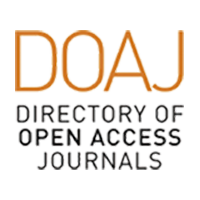Privacy Statement
SCOPE AND EDITORIAL POLICY
In order for an manuscriptarticle to be considered for publication in the ANALES Journal of the Faculty of Medical Sciences, it must meet the following criteria:
- That has not been previously published.
- It is not currently under consideration for publication in another journal.
- The manuscript at it complies with ethical standards.
A. RESEARCH ETHICS
Human Subjects Research Ethics Policies
The following policies apply to all manuscriot articles involving human subjects research.Researchers submitting studies with human participants must meet the following requirements:
- Obtain the prior approval of the Ethics Committees for research with Human subjets.Beings.
- Declare compliance with ethical practices when submitting the manuscript.article.
- Report details on how informed consent for the research was obtained (or explain why consent was not obtained).
- For clinical trials, please provide trial registration details, study protocol, and CONSORT documentation.
- Clinical investigations must be conducted in accordance with the principles expressed in the Declaration of Helsinki.
- Protect the right to anonymity of those who participated in the investigation. ANALES Journal Magazine adheres to the general guidelines of the Advertising Ethics Committee (COPE) http://publicationethics.org/.
B. ETHICS IN PUBLICATION
The most frequent ethical faults in the publication are plagiarism, inadequate authorship and redundant publication.
Plagiarism: All manuscripts articles submitted for publication will be reviewed by plagiarism software QUETEXT. Proposals containing a high percentage of similarity (50% or more) will not be accepted. Articles with any percentage of plagiarism will be reviewed, it will be verified where the plagiarism is found, and definitions will be considered for its reduction.
Digital Preservation: ANALES Journal preserves all documents electronically in different formats, which allows digital access to all volumes. The backup of the OJS information is carried out on a daily basis, which allows access to all the modified or deleted information.
Inadequate authorship: Participation in authorship and the order of appearance in the article is the responsibility of the authors and the journal has no interference in these aspects.
All authors must:
- Contribute significantly to the conception or design of the manuscript, or to the collection, analysis, or interpretation of the data.
- Write or perform a critical review of the content of the manuscript.
- Approve the final version to be published.
- Assume responsibility for all aspects of the manuscript, to ensure that issues related to the accuracy or completeness of any of its parts will be properly investigated and resolved.
In order for someone to be recognized as an author, they must meet the four conditions mentioned. In turn, these data must appear in "Authors contribution" located after the Conclusions. On the other hand, only participation in fundraising, data collection or general supervision of the research group does not justify authorship and should be listed in the “Acknowledgments” section.
Redundant publication (i.e., duplicate and fragmented publication): ANALES does not accept duplicate publication.
C. CONFLICT OF INTERESTS
The authors must declare the presence or absence of conflicts of interest in relation to the research presented.
Conflicting interests may be financial or non-financial, professional or personal.
Conflicting interests may arise in relation to an institution, organization or other person.
What to declare
All persons involved in the peer review process, including authors, editors, and reviewers must declare all potentially conflicting interests that occurred within 5 years of conducting the research under consideration.
Conflicting financial interests
Interests in financial competition include, but are not limited to:
- Ownership of shares.
- Paid employment or consultancy.
- Patent applications (pending or current), including individual applications or those belonging to the institution with which the authors are affiliated and from which the authors can benefit.
- Research grants.
- Travel grants and fees for speaking or participating in meetings.
- Gifts.
Non-financial competitive interests
Non-financial competing interests include, but are not limited to:
- Acting as an expert witness.
- Membership in a government or advisory board.
- Relationship (paid or unpaid) with organizations and funding bodies, including non-governmental organizations, research institutions, or charities
- Personal relationships (e.g., friend, spouse, family member, current or former mentor, adversary) with people involved in submitting or evaluating an article, such as authors, reviewers, editors, or editorial board members.
- Personal convictions (political, religious, ideological, or other) related to the topic of an article that could interfere with an impartial publication process at the stage of authorship, peer review, editorial decision-making, or publication.
D. DISCLOSURE OF FUNDING SOURCES
All authors of Anales are required to declare support they received to carry out their research. The funding sources statement acknowledges the contributions of funders, meets funding requirements, and promotes greater transparency in the research process.
What to declare: each author must individually declare all sources of funding received for the research submitted to the journal. This information includes the name of the awarding agencies, grant numbers, and a description of the role of each funder.





